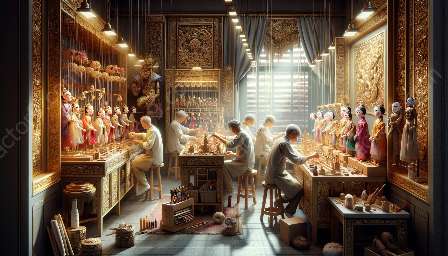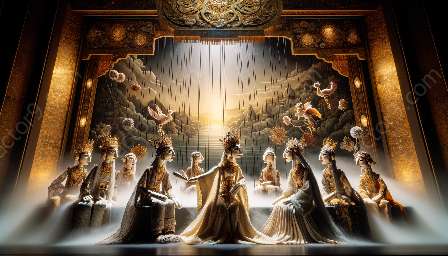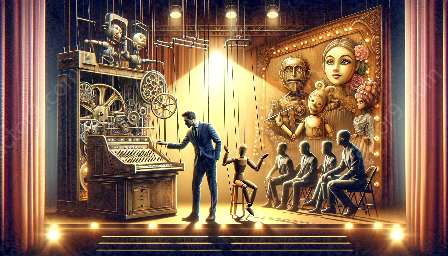Puppetry is an art form that has been practiced for centuries, and those pursuing careers in puppetry require a unique set of skills and training to succeed. This comprehensive guide will explore the essential skills and training needed for a successful career in puppetry, from formal education to the development of performance abilities.
Education and Training
Formal Training Programs: While not a strict requirement, enrolling in a puppetry training program or workshop can provide aspiring puppeteers with a strong foundation in the art. Many universities and art schools offer dedicated puppetry programs that cover various aspects of this craft, including puppet construction, manipulation techniques, and performance skills.
Self-Education: In some cases, individuals may opt for self-guided learning through books, online resources, and mentorship from experienced puppeteers. While this approach may lack formal credentials, dedicated self-education can still lead to a successful career in puppetry through passion and determination.
Artistic Skills
Creative Design: Puppetry involves the creation of diverse characters, each requiring unique design elements. Aspiring puppeteers should develop proficiency in conceptualizing, designing, and crafting puppets that resonate with audiences.
Theatrical Performance: Puppetry often integrates theatrical performance, requiring actors and puppeteers to master various performance techniques, such as voice modulation, movement, and stage presence. Training in acting and performance arts can significantly enhance the storytelling aspect of puppetry.
Technical Proficiency
Construction Skills: Understanding the construction and mechanics of puppets is essential for puppeteers. This includes knowledge of materials, sewing, woodworking, and mechanical engineering to bring puppets to life with precision and functionality.
Technology Integration: In modern puppetry, the use of technology, such as animatronics and digital effects, has become increasingly common. Familiarity with technical tools and software can open up innovative avenues for storytelling and performance.
Collaborative Abilities
Teamwork: Many puppetry productions involve collaborative efforts among puppeteers, directors, designers, and technical crew. The ability to work harmoniously within a team and contribute creatively is crucial for successful puppetry careers.
Communication: Effective communication skills are vital for conveying ideas, giving and receiving feedback, and coordinating with fellow artists and production teams.
Adaptability and Business Acumen
Adaptability: Puppeteers often work across different genres, from children's entertainment to adult-themed productions. Being adaptable and open to diverse creative opportunities can expand career prospects in puppetry.
Business Skills: For puppeteers pursuing independent careers, knowledge of marketing, self-promotion, budgeting, and contract negotiation can be invaluable in establishing and sustaining a successful puppetry practice.
Professional Networking
Industry Engagement: Networking within the puppetry community, attending industry events, and actively seeking collaborations can help aspiring puppeteers build connections and opportunities within the field.
Mentorship: Establishing mentor relationships with experienced puppeteers can provide guidance, support, and insights into the professional landscape of puppetry.
Continued Learning
Workshops and Master Classes: Ongoing participation in workshops and master classes can enrich a puppeteer’s skills, introduce new techniques, and foster continuous improvement in the craft.
Stay Informed: Remaining updated on the latest trends, innovations, and developments in puppetry and related industries ensures that puppeteers remain relevant and adaptable in their careers.
Conclusion
In summary, a successful career in puppetry requires a blend of artistic proficiency, technical acumen, collaborative spirit, adaptability, and ongoing education. By honing these skills and seeking the right training opportunities, aspiring puppeteers can carve out fulfilling and impactful careers in this timeless art form.


























